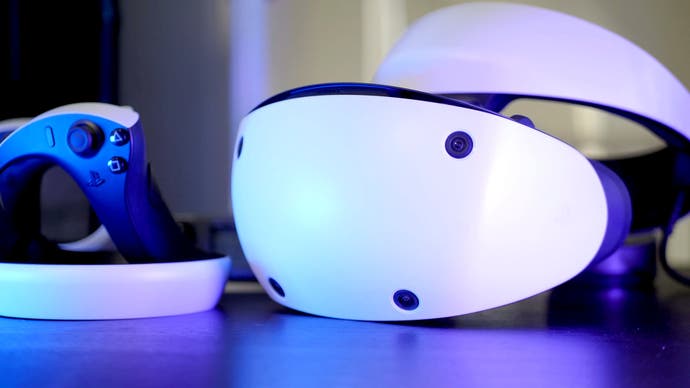Poll: Is VR gaming destined to remain niche?
VR dreams are made of this.
We're hot off the launch of PSVR2, and whilst it's received glowing reviews from our own VR expert Ian and the tech wizards at Digital Foundry , it's fair to say most people haven't bought one.
Looking within the Eurogamer team, you can count the number of people who own any VR headset on one hand. According to estimations shared by former president of Nintendo of America Reggie Fils-Aimé and calculated by online business platform Statista, only 1.3 percent of the world's population will own some form of VR hardware this year. By their projections, in 2027 that percentage will have plateaued out at 1.7 precent, whilst the percentage of people playing video games in any form will jump from 45 to 51.3 percent in the same timeframe.
So what's going on? Why isn't half the world enjoying scaling mountains in the world of Horizon or getting stepped on by Lady Dimitrescu?
Reggie chalked it up to a lack of must-play experiences, something Digital Foundry also alluded to in their review of PSVR2. "The software line-up at launch is solid... but regardless, based on what we've played so far, there is no game-changing unique experience," John wrote. Technical finesse can only get you so far.
Another angle to consider is price. PSVR2 costs upwards of £530, and can cost you nearly £1000 if you also need a PS5. That's not a particularly attractive price point for anyone right now, and if you've never played VR before it may be too high to justify buying. Meta increased the price of its Quest 2 VR headset, one of the biggest competitors currently for PSVR2, by $100, adding on a third of its original selling price.
Once you ask questions about accessibility options with headsets, it starts to feel like VR truly is doomed to never become mainstream. I remember 10 years ago being excited by the Oculus Rift start-up and the experiences VR gaming promised, but now I'm not so sure.
Whilst we're still lamenting the lack of a killer app (here's to you, Half-Life: Al) across all VR platforms, there may be some good news on the pricing front. Meta told Quest VR owners it will be sunsetting support for the headset in March, leading to speculation Meta Quest 3, a lower-end "mixed reality device" which is hoped to be more affordable than the £1500 Meta Quest Pro, will be formally announced soon.
But even with a more consumer-friendly price point, can you see VR headsets becoming as commonplace as home consoles? What do you think would need to be done to get more people into VR gaming? Or do you think VR by its nature can never be as popular as console gaming?
Is VR gaming destined to remain niche?


